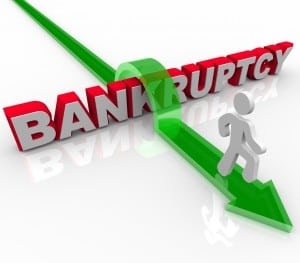 Most people who determine that they need to file bankruptcy, realize that there is more to it. They find out that there are different types or Chapters of bankruptcy. The most common forms of Bankruptcy is Chapter 7 and Chapter 13. Here, we will list the differences between the two Chapters as well as how they affect certain issues.
Most people who determine that they need to file bankruptcy, realize that there is more to it. They find out that there are different types or Chapters of bankruptcy. The most common forms of Bankruptcy is Chapter 7 and Chapter 13. Here, we will list the differences between the two Chapters as well as how they affect certain issues.
Chapter 7:
Chapter 7 Bankruptcy is commonly referred to as liquidation. However, this term is somewhat misleading. In most cases, people who file bankruptcy do not lose anything at all. At Tran Bankruptcy Law we will make sure we do everything we can to completely discharge your debt without losing any of your property. Those that qualify for Chapter 7 will receive a discharge of their unsecured debt without making any other payments to the courts or creditors.
Chapter 13:
Many people refer to Chapter 13 Bankruptcy as a reorganization or restructuring of debt. To put it more accurately, a Chapter 13 is a 3 to 5 year payment plan. The payment amount is determined by the amount you can afford each month. Basically, the payment plan is your gross monthly income subtracted by your necessary expenses (e.g. taxes, mortgage, health insurance, food, clothing cell phone bill). Tran Bankruptcy Law have experience working in the Central District of California. We will work with you and the Bankruptcy process to obtain a plan payment that is affordable and works.
You have Co-Debtors on Personal Loans
Chapter 7: Creditors can seek payment from your co-debtor. When you file bankruptcy, your co-debtor is still liable for the debt they co-signed for. Thus, unless they file for bankruptcy, the creditor may come after them for the balance under the terms of the debt agreement.
Chapter 13: Creditors are forced to abide by the terms of your Chapter 13 plan. Creditors cannot go after the co-signer during this time.
You Have Nonexempt Valuable Property
Chapter 7
This is where the term liquidation comes into play. If you have assets that cannot be exempt from the bankruptcy estate, then the assets/property/money will be liquidated to pay a portion or all of your debt. You will have a choice to pay the bankruptcy trustee the fair market value for the property or exchange exempt property of equal value provided that the trustee agrees.
Chapter 13
In a Chapter 13, your monthly payment will go towards paying off the nonexempt property. Therefore, you can keep your nonexempt property
You Have a Prior Bankruptcy
Chapter 7
If your previous bankruptcy is a Chapter 7, then you must wait 8 years from the date of filing to file a new Chapter 7 case.
Chapter 13
You can re-file.
Mortgages and Car Loans
Chapter 7
In a Chapter 7, you can return the car or let the mortgage company foreclose on the home. Any deficiency balance will be discharged as part of your unsecured debt. You can also arrange to reaffirm the debt or continue making payments to keep the car or home.
Chapter 13
You will likely be allowed to keep the house or car if you stay current with a court ordered payment system. You can also include car payments into the Chapter 13 plan as a way to reduce your monthly car payment.
Debts Owned As A Result of Past Crimes
Chapter 7
Your debts will likely not be discharged if the creditor objects and can demonstrate your prior act (usually through a prior court conviction).
Chapter 13
Although you will be required to pay for them as part of the Chapter 13 plan, the balance may be wiped out if the outstanding debts are not paid in full by the end of Chapter 13 bankruptcy.
Debts Owed for Child Support, Alimony, Student Loans
Chapter 7
These debts are not dischargeable. There are exceptions to this rule.
Chapter 13
The monthly payments can be included into the Chapter 13 plan. Any debt still owed must be paid after the Chapter 13 plan.
Nonsupport Debts Owed In a Divorce, Property Settlement or Agreement
Chapter 7
If a creditor (often the spouse) objects, then the debt will not be discharged unless you demonstrate that 1) you still will be unable to pay these debts after bankruptcy or 2) the benefit of wiping out this debt exceeds the detriment caused to the creditor.
Chapter 13
Any remaining balance at the end of Chapter 13 bankruptcy will be erased.
You Want to Pay the Creditor to Keep Secured Property
Chapter 7
You can pay the wholesale value in a lump sum. In some cases you may arrange to make payments.
Chapter 13
You can pay the replacement value with interest over time through your bankruptcy.
You File Chapter 7, but Your Income Is Sufficient For Chapter 13
Chapter 7
The court may dismiss your case or convert it to a Chapter 13 bankruptcy.
You file a Chapter 13, but you income is insufficient to support the Chapter 13 Plan
Chapter 13
The court may dismiss or convert your case to a Chapter 7 bankruptcy.